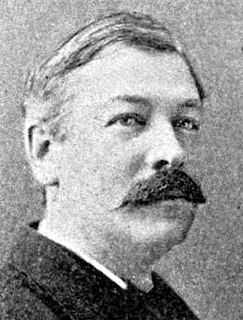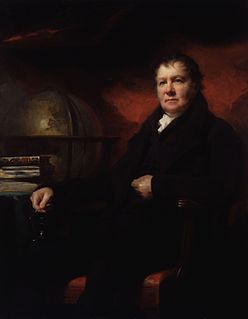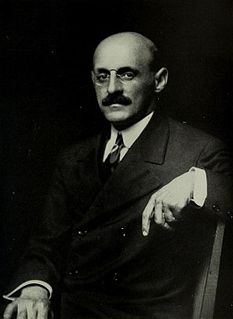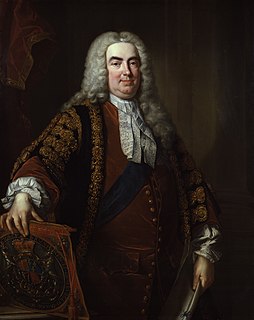A Quote by Oliver Goldsmith
We may affirm of Mr. Buffon, that which has been said of the chemists of old; though he may have failed in attaining his principal aim, of establishing a theory, yet he has brought together such a multitude of facts relative to the history of the earth, and the nature of its fossil productions, that curiosity finds ample compensation, even while it feels the want of conviction.
Related Quotes
In this life we get only those things for which we hunt, for which we strive, and for which we are willing to sacrifice. It is better to aim for something that you want-even though you miss it-than to get something that you didn't aim to get, and which you don't want! If we look long enough for what we want in life we are almost sure to find it, no matter what that objective may be.
[The scientist] believes passionately in facts, in measured facts. He believes there are no bad facts, that all facts are good facts, though they may be facts about bad things, and his intellectual satisfaction can come only from the acquisition of accurately known facts, from their organization into a body of knowledge, in which the inter-relationship of the measured facts is the dominant consideration.
I believe that it may happen that one will succeed, and one must not begin to despair, even though defeated here and there; and even though one sometimes feels a kind of decay, though things go differently from the expected, it is necessary to take heart again and new courage. For the great things are not done by impulse, but by a series of small things brought together. And great things are not something accidental, but must certainly be willed. What is drawing? How does one learn it? It is working through an invisible iron wall that seems to stand between what one feels and what one can do.
The way in which a man accepts his fate and all the suffering it entails, the way in which he takes up his cross, gives him ample opportunity — even under the most difficult circumstances — to add a deeper meaning to his life. It may remain brave, dignified and unselfish. Or in the bitter fight for self preservation he may forget his human dignity and become no more than an animal
Our challenges may be new. The instruments with which we meet them may be new. But those values upon which our success depends -- honesty and hard work, courage and fair play, tolerance and curiosity, loyalty and patriotism -- these things are old. These things are true. They have been the quiet force of progress throughout our history. What is demanded, then, is a return to these truths.
The Author of nature has not given laws to the universe, which, like the institutions of men, carry in themselves the elements of their own destruction; he has not permitted in his works any symptom of infancy or of old age, or any sign by which we may estimate either their future or their past duration. He may put an end, as he no doubt gave a beginning, to the present system at some determinate period of time; but we may rest assured, that this great catastrophe will not be brought about by the laws now existing, and that it is not indicated by any thing which we perceive.
His [Henry Cavendish's] Theory of the Universe seems to have been, that it consisted solely of a multitude of objects which could be weighed, numbered, and measured; and the vocation to which he considered himself called was, to weigh, number and measure as many of those objects as his allotted three-score years and ten would permit. This conviction biased all his doings, alike his great scientific enterprises, and the petty details of his daily life.
Curiosity, which may or may not eventuate in something useful, is probably the most outstanding characteristic of modern thinking ... Institutions of learning should be devoted to the cultivation of curiosity, and the less they are deflected by the consideration of immediacy of application, the more likely they are to contribute not only to human welfare, but to the equally important satisfaction of intellectual interest, which may indeed be said to have become the ruling passion of intellectual life in modern times.
A friend, therefore, is a sort of paradox in nature. I who alone am, I who see nothing in nature whose existence I can affirm with equal evidence to my own, behold now the semblance of my being, in all its height, variety, and curiosity, reiterated in a foreign form; so that a friend may well be reckoned the masterpiece of nature.
It has always happened hitherto that whenever I have begun to feel an attachment to places, persons, or things, of a merely temporary nature, I have been carried away from them. Amen! May I live as a stranger and pilgrim upon the earth. May we be brought to that better country where painful changes are known no more.
Nature seems to delight in disappointing the assuduities of art, with which it would rear dulness to maturity, and to glory in the vigor and luxuriance of her chance productions. She scatters the seeds of genius to the winds, and though some may perish among the stony places of the world, and some may be choked by the thorns and brambles of early adversity, yet others will now and then strike root even in the clefts of the rock, struggle bravely up into sunshine, and spread over their sterile birthplace all the beauties of vegetation.






































